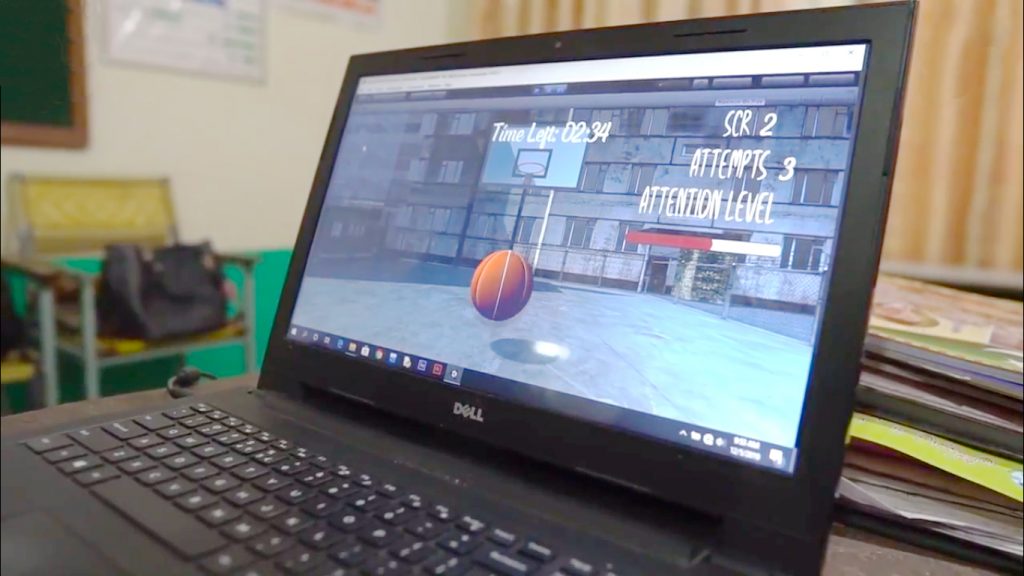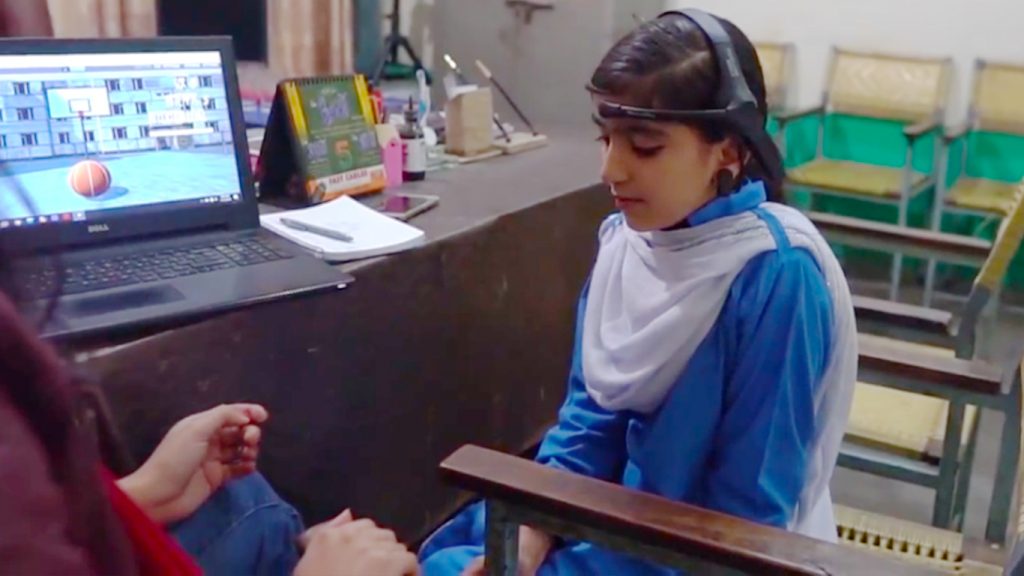Several industries are working on the development of neurogaming systems for cognitive learning. VR based neurogaming systems can bring innovation in the education and health sector of Pakistan, by proving better learning opportunities for children. The traditional methods for training cognitive abilities include extensive therapies in which neurofeedback is not included and only manual feedback is used from the user. Neurofeedback based neurogaming is a recent research area and many researchers have proposed such systems. But these systems are mainly region-specific and the Pakistani community is unable to excess these costly systems.
Therefore, researchers in BioInformatics Research Lab (BIRL), Al-khawarizmi Institute of Computer Science, (KICS) have developed VR based neurogaming for mindfulness in children and ADHD patients under the research grand from Technology Development Fund (TDF). They have developed an innovative system where user can analyze their cognitive abilities to play interactive games which makes it unique from traditional gaming. In this neuro-feedback system, multiple games have been designed to target children suffering from Attention Deficit Hyperactivity Disorder (ADHD). These games use the brain signal of users that is used as a cognitive feature input for multiple levels of games. Moreover, these game-based applications are designed in an immersive 3D and virtual reality (VR) environment which enhances the gaming experience of the user and motivates ADHD patients to actively participate in these games.
VR based neurogaming will help children in schools and homes to reach their maximum potential by increasing their attention, memory, and learning capabilities. Our research team has tested the developed system on school children and collected their responses. Their feedback was positive and, in the future, we are planning to extend this for ADHD patients in different hospitals and physiatrist institutes.
This system has its impact on education as well as in the health sector, by providing better facilities for the treatment of mental disorders such as Autism and ADHD. We believe that this system is deemed to contribute to the development of mental health institutes and for improving the health conditions of the children in Pakistan.

